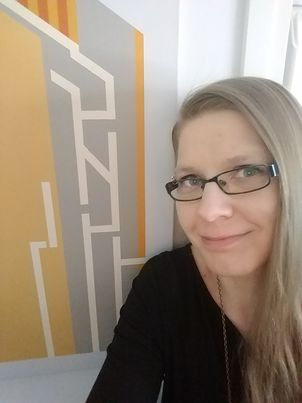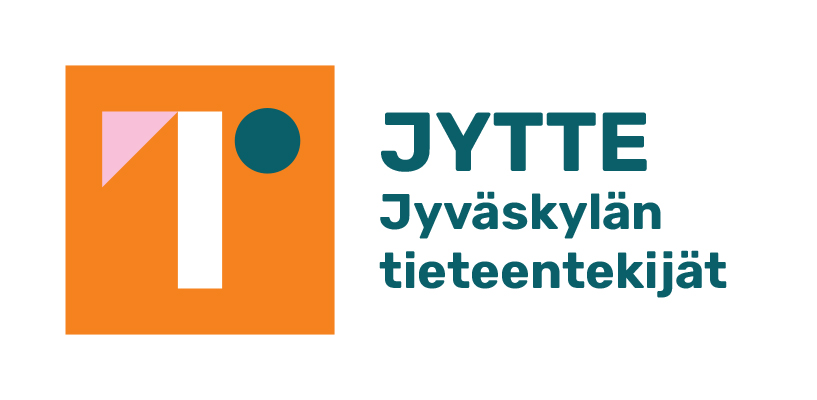In 2022, Jytte’s focus will be on sustainability and the environment, themes that will also be discussed on the blog over the year. The first post of a new blog series will introduce Jytte’s member Heli Niskanen and tell us how environmental issues led her to become a member of Jytte’s board once again. Authors of future posts include the sustainability and responsibility specialist Ulla Helimo and research coordinator Mikael Puurtinen who write about environment and sustainability actions of both JYU and Jytte, and report on Jytte’s climate and environment working group.
I should probably start by introducing myself: my name is Heli Niskanen, I am a member of Jytte and a deputy board member as of January 2022. I work for the Student and Academic Services. That makes me a member of administrative staff (or other staff, or specialist and support staff – a rose by any name etc.) and therefore, most likely, I belong to a minority among the members of Jytte. If you belong to the same group, I would love it if you got in touch with me or another member of the board and told us your hopes and expectations regarding Jytte. It is always easier to develop our practices when there are clear targets.
Anyway, let us get down to business: how did the climate and sustainability managed to sneak into – or more accurately crash into – my life? And what has Jytte got to do with it?
When the world is no longer safe and sound
I have been board member before in the mid-2010s. Around the time major life change happened: my child was born and I suddenly got very busy, which meant that I had to get my priorities straight. I left the board at the end of 2017.
Around the same time, something classic happened as well. Or at least what happened could have been predicted: having a child suddenly made me interested in and worried about the future of the planet. Of course, climate change and environmental crises had been discussed in the media and researched by scientists for decades, but I had managed to largely ignore all of it. I had watched An Inconvenient Truth (2006) and forgot all about it pretty much instantly. In the serenity of Finland, it was all too easy to do so, especially for someone like me who prefers holing up indoors with a book to any outdoor activities. But when I realised it might affect me, or the small person I was now looking after, everything changed. A smarter person would have reacted much sooner.
Towards the end of 2017, as I was putting together handover materials for my successor on the Jytte board, I was whinging on social media about my personal, recent, and steadily increasing climate and environment anxiety. Gradually, the anxiety turned into actions that affected my everyday life. In the shop, I looked for things that were labelled as organic and familiarised myself with harvest calendars. I went through most of the cupboards at home and recycled or donated bin bag after bin bag of accumulated stuff. In 2018, I started to write down all the things and clothes I bought. Already in January, I was shocked by the number of things on the list and decided to change my habits. Also in 2018, half by accident, I had a beef-free January which led into dietary changes.
In the years that followed, I tried a variety of things to make my life more sustainable. I thought about things, and I did things, sometimes failing, sometimes succeeding, and certain things I stuck with while giving up on others, and some went just so and so. Every accomplishment brought with it a moment of joy, but overall, increasing the sustainability of your everyday life causes headaches and requires perseverance and sometimes even money – although in the long run, I believe it will create happiness and savings.
For climate and sustainability – also in Jytte
The reason for my return to Jytte is sustainability. When I learned about the climate and sustainability theme, I wanted to be back on board. As I am writing this, Jytte’s climate and the environment working group has met twice. In the group, we have discussed Jytte’s own activities as well as ways we could spur the University on to doing more for the environment. A good starting point for discussion has been the Wisdom letters 2/2021 that includes an analysis of the environmental impact of the University and makes suggestions on how reduce it.
One way to influence people is through the research and teaching of sustainability. In teaching, this will be prominent in undergraduate studies since every course ran between 2024–2027 will have to include an introductory module on planetary wellbeing. Additionally, the learning objectives of all degree programmes must include themes around sustainability.
This creates new challenges for everyone in the University of Jyväskylä. Provided that all the goals related to learning objectives and carbon neutrality can be met, the University staff and researchers will have to start thinking about their research, teaching, working, and actions in terms of sustainability and the climate.
This is exactly the work Jytte and its climate and the environment working group is doing. The aim is to map ways to sustainability, to support the community in reaching its goals, and to remove barriers preventing change, in both the University and Jytte.
Starting to learn, once again
Learning new things must be an important part of the everyday working life of Jytte’s members. One thing that followed from my climate awakening was the realisation that my understanding of the ways climate change could be fought is too limited. One would assume that the University’s carbon neutrality goal must mean that as an employee, I should understand these things and how they relate to my work. Additionally, I hope that one day I can do voluntary work related to the environment.
For these reasons, I applied to HAMK to study environmental planning (Bachelor of Natural Resources). The prospectus noted that the degree allows graduates to work as coordinators, consults, or trainers helping businesses, organisations, and individuals to become more sustainable. This is perfectly in line with my personal goals. I was accepted on the course and enrolled in 2021 on a part-time basis. I am on study leave for 2022, which allows me to study full-time. Starting a new degree is either the best or the most insane thing I have done in a while. By the end of the year, I should know which one.
Ahead of me thus lie the themes of climate change and sustainability, both in my studies and at Jytte. I am hoping that the studies will help me advance the themes at both Jytte and the University. The very first climate and environment working group meetings have shown that the members of Jytte possess a huge amount of expertise on climate change and sustainability. I would like as many members as possible to get in touch and tell us about your thoughts on these themes. And what you would like us to write about in this blog series. I am looking forward to engaging in active dialogue.

Heli Niskanen
Coordinator (Educational services)
